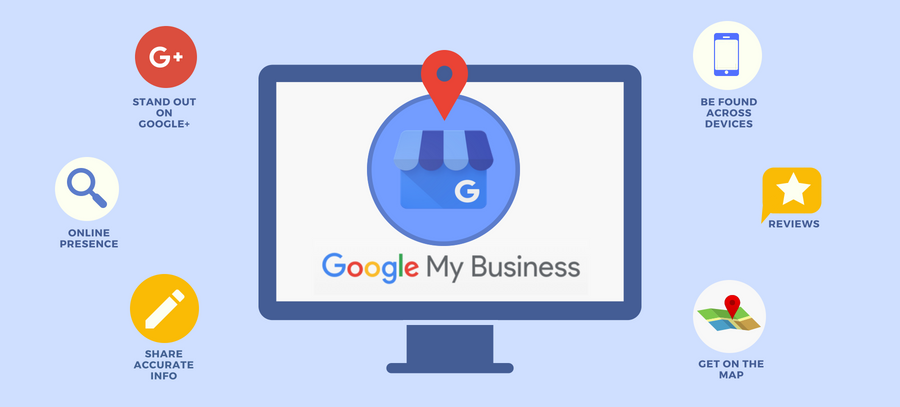
Learn everything you need to know about website hosting, from the different types of hosting to factors to consider when choosing a provider.
Introduction
What is Website Hosting?
If you’re interested in starting a website, you’ve likely heard the term “website hosting” before. But what exactly does it mean? At its most basic level, website hosting is the service that allows your website to be accessible to visitors on the internet.
Website hosting involves renting server space and resources from a hosting provider, who stores your website’s files on their servers and makes them available to anyone who types in your website’s domain name. Without website hosting, your website would simply be a collection of files stored on your personal computer, inaccessible to anyone else.
Types of website hosting
There are several different types of website hosting available, each with its own advantages and disadvantages. Here are the most common types:
Shared Hosting
Shared hosting is the most common type of website hosting, and it’s often the most affordable. With shared hosting, multiple websites share the same server resources, meaning that your website’s performance can be impacted by the traffic and activity of other websites on the same server.
VPS Hosting
VPS (Virtual Private Server) hosting involves renting a virtual server space that acts like a dedicated server, but is still technically shared with other websites. This type of hosting is more flexible than shared hosting, but it’s also typically more expensive.
Dedicated Hosting
With dedicated hosting, you have an entire server dedicated solely to your website. This type of hosting is the most powerful and customizable, but it’s also the most expensive.
Cloud Hosting
Cloud hosting involves hosting your website on a network of servers rather than a single physical server. This can provide increased scalability and reliability, but it can also be more complex to set up and manage.
Factors to consider when choosing website hosting
Factors to Consider When Choosing Website Hosting
When choosing a website hosting provider, there are several factors you should consider to ensure that you choose the right service for your needs. Here are some of the most important factors to consider:
Uptime
Uptime refers to the amount of time that your website is online and accessible to visitors. Look for a hosting provider that offers a high uptime guarantee (at least 99%).
Customer Support
Choose a hosting provider that offers 24/7 customer support, with multiple options for contacting them (phone, email, live chat).
Security
Make sure that the hosting provider has robust security measures in place to protect your website from hacking and malware.
Scalability
Choose a hosting provider that can grow with your website’s needs, offering options for increasing server resources as your traffic and content increases.
Cost
The cost of web hosting varies depending on the type of hosting and the features offered. Shared hosting is usually the most affordable option, while dedicated hosting is the most expensive. However, you should not just choose the cheapest option without considering the features and reliability of the hosting provider.
How to choose the best website hosting provider
Choosing the best website hosting provider can be a daunting task, especially if you are new to website hosting. However, by considering a few key factors, you can make an informed decision and choose the best hosting provider for your website.
Step 1: Determine your website’s needs
Before you start searching for a web hosting provider, you should determine your website’s needs. Consider factors such as the type of website you are building, the amount of traffic you expect, and the features and functionality you require. This will help you narrow down your search and choose a provider that offers the features you need.
Step 2: Research web hosting providers
Once you have determined your website’s needs, you can start researching web hosting providers. Look for providers that offer the features you need and have a good reputation for reliability and customer support. You can also read reviews and ask for recommendations from other website owners.
Step 3: Compare plans and pricing
Once you have identified a few web hosting providers that meet your needs, you can compare their plans and pricing. Look for providers that offer affordable plans with the features you need. However, don’t just choose the cheapest option without considering reliability and customer support.
Step 4: Consider customer support
Good customer support is essential when choosing a web hosting provider. Look for providers that offer 24/7 support through multiple channels such as phone, email, and live chat. You should also check their response times and make sure they have a good reputation for resolving issues quickly and effectively.
Step 5: Check security features
Security is important for your website, and you should choose a web hosting provider that offers strong security features such as firewalls, malware scanning, and SSL certificates. Make sure that the provider you choose has a good reputation for security and regularly updates their security measures.
By following these steps and considering the factors outlined above, you can choose the best web hosting provider for your website and ensure that it runs smoothly and reliably.
Setting up website hosting
Once you have chosen a web hosting provider, you can start setting up your website hosting. This typically involves registering a domain name, choosing a hosting plan, configuring DNS settings, and uploading your website files. Let’s take a closer look at each of these steps.
Registering a domain name
A domain name is the address of your website, such as www.yourwebsite.com. You can register a domain name through your web hosting provider or a third-party domain registrar. When choosing a domain name, make sure it is memorable and relevant to your website.
Choosing a hosting plan
Once you have registered your domain name, you can choose a hosting plan that meets your website’s needs. Most hosting providers offer a variety of plans with different features and pricing. Consider factors such as storage space, bandwidth, and the number of email accounts when choosing a plan.
Configuring DNS settings
DNS (Domain Name System) is the system that translates your domain name into an IP address, allowing users to access your website. You will need to configure your DNS settings to point your domain name to your hosting provider’s server. This typically involves updating your domain name’s DNS records through your domain registrar.
Uploading website files
Once you have registered your domain name and chosen a hosting plan, you can start uploading your website files to your hosting provider’s server. This typically involves using an FTP (File Transfer Protocol) client to transfer your files to the server. You should also configure any necessary settings such as database connections and email accounts.

Website hosting maintenance
Once your website is up and running, it’s important to maintain it to ensure that it continues to function properly and provide a positive user experience. Here are some key aspects of website hosting maintenance:
Updating software and plugins
Your website is built using software and plugins, which may need to be updated periodically to address security vulnerabilities, improve performance, or add new features. Make sure to keep your software and plugins up to date to ensure that your website is secure and functioning optimally.
Regularly backing up data
Data loss can be a major setback for any website, so it’s important to regularly back up your data to prevent loss in case of a system failure or cyber attack. Many hosting providers offer automated backup services, but it’s also a good idea to manually back up your data periodically.
Monitoring website performance
Monitoring your website’s performance can help you identify any issues or areas for improvement. Use website monitoring tools to track metrics such as page load time, uptime, and user engagement to ensure that your website is providing a positive user experience.
Renewing hosting plan
Most hosting plans are offered on a subscription basis, so make sure to renew your hosting plan before it expires to avoid any disruption in service. Some hosting providers offer automatic renewal services, while others require manual renewal.
Conclusion
In this article, we’ve covered the basics of website hosting, including what it is, the different types of hosting available, and factors to consider when choosing a hosting provider. We also discussed the process of setting up website hosting, as well as the importance of ongoing maintenance.
Website hosting is a crucial component of any successful website. It provides the foundation for your website to function properly and deliver a positive user experience. When choosing a hosting provider, it’s important to consider factors such as reliability, security, and customer support, as well as the specific needs of your website.
Remember that website hosting is not a one-time task, but an ongoing process that requires regular maintenance to ensure optimal performance and security. By staying on top of website hosting, you can ensure that your website is functioning at its best and providing a positive user experience.
At Irish Media Agency, we understand the importance of choosing the right website hosting provider for your business. Our team of experts can help you navigate the often-confusing world of website hosting and find the perfect solution to meet your needs.
Don’t leave your website hosting to chance – trust the experts at Irish Media Agency to help you achieve your goals. Contact us today to learn more and get started.



